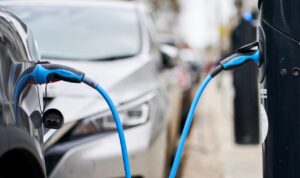Used Electric Cars and Battery Replacement Costs is a topic that captures the interest of eco-conscious buyers and car enthusiasts alike. As more people consider transitioning from traditional vehicles to electric options, understanding the financial and practical implications of purchasing a used electric car is essential. This discussion will explore not only the benefits of going electric but also the factors that influence battery life and replacement costs, ensuring you make an informed decision when buying a used electric vehicle.
Diving deeper, we’ll discuss various electric car models, the performance of their batteries, and what you can expect in terms of maintenance and long-term ownership costs. With the right knowledge, navigating the world of used electric cars can lead to both environmental benefits and significant savings on fuel and maintenance.
Understanding Used Electric Cars
The shift towards electric vehicles (EVs) has transformed the automotive landscape, and purchasing a used electric car presents an appealing alternative to the traditional gasoline-powered vehicles. With advancements in technology and the growing emphasis on sustainability, used electric cars offer a unique combination of benefits that make them an attractive option for many drivers.When considering the advantages of buying a used electric car, one must acknowledge the substantial savings in fuel costs and maintenance.
Electric cars generally have fewer moving parts than their gasoline counterparts, resulting in lower repair and upkeep costs. Additionally, many used electric cars come with warranties that cover battery life, providing peace of mind to buyers. Moreover, with the increasing number of charging stations, the convenience of owning an electric vehicle has improved significantly.
Benefits of Purchasing Used Electric Cars
The benefits of purchasing a used electric vehicle go beyond just financial savings. They contribute to environmental sustainability and reduce dependence on fossil fuels. Here are some key advantages:
- Lower Operating Costs: Electricity is generally cheaper than gasoline, and electric vehicles tend to require less maintenance.
- Reduced Environmental Impact: Electric cars produce zero tailpipe emissions, which significantly lowers air pollution and greenhouse gas emissions.
- Access to Incentives: Many regions offer tax credits and rebates for purchasing electric vehicles, even on used models.
- Improved Technology: Used electric cars often come equipped with advanced technology such as regenerative braking and battery management systems that enhance efficiency.
Factors Affecting Resale Value of Electric Cars
Understanding the factors that affect the resale value of electric vehicles is crucial for potential buyers. The depreciation rate of electric cars can be different from traditional vehicles due to a variety of reasons:
- Battery Life: The remaining life of the battery significantly impacts resale value. A well-maintained battery can maintain a higher value.
- Brand Reputation: Established brands with a history of reliability tend to hold their value better in the used market.
- Technological Advancements: Rapid advancements in electric vehicle technology can lead to older models depreciating faster as newer, more efficient models are released.
- Market Demand: As consumer interest in electric vehicles grows, demand for certain used models can influence their overall resale value.
Popular Used Electric Car Models and Their Features
Several used electric car models have gained popularity, reflecting their performance, reliability, and features that cater to a wide range of consumers. Here’s an overview of some noteworthy models:
- Tesla Model 3: Known for its impressive range and performance, the Model 3 offers advanced autopilot features and a minimalist interior design.
- Nissan Leaf: One of the most affordable options, the Leaf provides a practical range and includes features such as a spacious interior and safety technology.
- Chevrolet Bolt EV: With a competitive range and ample cargo space, the Bolt EV is praised for its value and practicality in urban settings.
- BMW i3: This unique compact car stands out for its innovative design and sustainable materials, along with a premium driving experience.
Battery Life and Performance
Electric vehicle (EV) batteries are at the heart of electric cars, directly influencing both their lifespan and performance. Understanding the average lifespan of these batteries, along with the factors that can affect it, is crucial for potential buyers and current owners alike. This knowledge not only helps in making informed purchasing decisions but also in maintaining the vehicle’s efficiency over time.The average lifespan of an electric car battery typically ranges from 8 to 15 years, with many batteries retaining a significant portion of their capacity even after extensive usage.
Several factors influence battery longevity, including temperature, charging habits, and the number of charge cycles. For instance, consistently charging to 100% or allowing the battery to drop completely can accelerate degradation. Furthermore, extreme temperatures can also impact battery performance, as excessive heat can lead to faster wear while freezing temperatures can temporarily reduce capacity.
Driving Habits Impacting Battery Performance
Driving habits play a vital role in the performance and longevity of electric vehicle batteries. Here are some specific behaviors that can either enhance or diminish battery health:
- Acceleration and Braking: Aggressive acceleration and hard braking can lead to increased energy consumption, putting additional stress on the battery.
- Speed: Driving at high speeds can rapidly deplete the battery. Maintaining a moderate speed can enhance efficiency and extend battery life.
- Frequent Short Trips: Regularly taking short trips may not allow the battery to reach optimal operating temperature, which can affect its performance.
- Use of Climate Control: Using heating or air conditioning excessively can drain the battery more quickly than driving without these systems.
The importance of these habits cannot be understated as they directly correlate with how well the battery maintains its health over time.
Battery Degradation Statistics Across Models
Battery degradation varies significantly among different electric vehicle models. Research indicates that most EV batteries will see an initial drop in capacity but stabilize after that. For example, Tesla models have shown impressive results, typically losing around 5-10% of their capacity after the first 100,000 miles, with many still operating well after exceeding 300,000 miles.In contrast, some other models may experience more significant degradation, particularly those using older battery technology.
A study evaluated the Nissan Leaf, which has been reported to lose an average of 20% of its capacity after 60,000 miles, highlighting the differences in battery technology and management systems among manufacturers.
Understanding battery performance metrics and degradation rates can help in choosing the right electric vehicle for long-term use.
When considering battery life and performance, it’s essential to take into account both the vehicle’s make and model as well as personal driving habits. This information collectively aids in maintaining optimal battery health and ensuring that the electric vehicle delivers reliable performance throughout its lifespan.
Battery Replacement Costs
When considering a used electric car, understanding battery replacement costs is crucial for budgeting and long-term ownership. The cost of replacing the battery can vary significantly depending on the make and model of the vehicle, as well as market fluctuations in battery technology and materials. The average cost of battery replacement can range anywhere from $5,000 to $15,000. Factors influencing this range include the size of the battery, the manufacturer, and the vehicle’s age.
For instance, some manufacturers provide warranties that cover battery replacements for a certain period, which can impact the total cost over the car’s lifespan.
Variations in Battery Replacement Costs by Model and Manufacturer
Battery replacement costs can differ widely across various electric vehicle models. Understanding these differences can help you make a more informed decision when purchasing a used electric car. Below is a table showcasing the average battery replacement costs for some popular used electric car models:
| Car Model | Average Battery Replacement Cost |
|---|---|
| Nissan Leaf | $5,500 – $8,000 |
| Tesla Model S | $12,000 – $15,000 |
| Chevrolet Bolt EV | $8,000 – $9,500 |
| BMW i3 | $8,000 – $10,000 |
| Ford Mustang Mach-E | $7,500 – $9,000 |
The table illustrates how the cost of battery replacement can vary, making it essential for potential buyers to research specific models. For example, while the Nissan Leaf offers a more budget-friendly battery replacement, the Tesla Model S tends to carry a premium price tag due to its advanced technology and larger battery capacity.
“A significant factor in the total cost of ownership for electric vehicles is the battery replacement expense, which is often overlooked during the initial purchase decision.”
Understanding these costs can help you plan for future expenses and make a more informed choice about which used electric car fits your financial strategy.
Factors Influencing Battery Replacement
Understanding the factors that influence battery replacement is crucial for electric vehicle (EV) owners. Recognizing the signs of an aging battery, the effects of climate, and the available warranty options can help ensure optimal performance and longevity of your vehicle. This knowledge not only aids in planning for potential replacement but also enhances overall driving experience and efficiency.
Signs Indicating Battery Needs Replacement, Used Electric Cars and Battery Replacement Costs
Several indicators can help diagnose when an electric vehicle battery may require replacement. Monitoring these signs is essential for maintaining optimal vehicle performance.
- Reduced Range: If you notice a significant decrease in the distance your vehicle can travel on a single charge, it may be a sign that the battery is degrading.
- Longer Charging Times: An increase in the time required to charge the battery can indicate reduced efficiency, hinting at potential issues with battery health.
- Unusual Warning Lights: Dashboard alerts related to battery issues should be taken seriously, as they often signal a problem requiring immediate attention.
- Physical Damage: Any visible swelling or damage to the battery casing can compromise the battery’s integrity and performance, necessitating replacement.
Impact of Climate on Battery Health
Climate plays a significant role in the health and longevity of electric vehicle batteries. Understanding this impact is vital for EV owners, as it can influence replacement needs.
- Extreme Temperatures: Both excessive heat and cold can negatively affect battery performance. High temperatures can accelerate battery degradation, while cold conditions may reduce range and increase charging time.
- Humidity Levels: High humidity can lead to moisture accumulation, which may cause corrosion and damage to battery components over time.
- Temperature Fluctuations: Frequent changes in temperature can stress the battery, potentially leading to premature failure or the need for replacement.
Warranty Options for Electric Car Batteries
Electric vehicle batteries typically come with warranties that can provide peace of mind to owners. Understanding these warranty options is key to making informed decisions about battery management and potential replacement.
- Basic Warranty: Most manufacturers offer a standard warranty of 8 years or 100,000 miles, whichever comes first, covering defects in materials and workmanship.
- Performance Warranty: Some manufacturers guarantee a specific percentage of battery capacity at the end of the warranty period, ensuring that the battery maintains a certain level of performance.
- Extended Warranty Options: Owners may have the option to purchase extended warranties for additional coverage beyond the standard period, which can be beneficial for long-term owners.
Financial Considerations
Owning a used electric car brings unique financial advantages that can significantly impact your wallet over time. The initial purchase price of a used electric vehicle (EV) is generally lower than that of a new one, allowing buyers to enter the electric vehicle market without breaking the bank. Furthermore, the long-term savings in fuel and maintenance costs elevate the financial attractiveness of these vehicles, enriching the overall ownership experience.
Long-term Financial Benefits of Used Electric Cars
The financial benefit of owning a used electric car largely stems from reduced operating costs. Electric vehicles typically have lower fueling expenses compared to gasoline-powered cars, and their maintenance costs are generally lower due to fewer moving parts. For example, while an internal combustion engine vehicle may require regular oil changes and exhaust system repairs, an electric car eliminates these needs.
The average cost of electricity for charging is also less than gasoline on a per-mile basis.
In addition to direct savings, electric vehicle owners can enjoy various tax incentives and rebates. Many states and municipalities offer tax credits for electric vehicle purchases, which can substantially lower the effective purchase price. For example, a $7,500 federal tax credit can offset the initial cost of a used EV, making it an even more attractive option.
Comparison of Total Ownership Costs
When evaluating the total ownership costs between used electric cars and traditional vehicles, it is essential to consider various factors, including purchase price, fuel costs, maintenance, and battery replacement. Below is a breakdown of a comparison for clarity:
| Cost Category | Used Electric Car | Traditional Vehicle |
|---|---|---|
| Initial Purchase Price | $25,000 | $30,000 |
| Fuel Costs (Annual) | $500 | $1,500 |
| Maintenance Costs (Annual) | $300 | $800 |
| Battery Replacement (Every 8 years) | $5,000 | N/A |
| Total Cost Over 8 Years | $41,500 | $62,400 |
This table illustrates that despite the potential for battery replacement costs in used electric cars, the overall financial burden remains lower than that of traditional vehicles. This makes electric cars a more budget-friendly choice over time.
Incentives and Rebates for Electric Car Buyers
Many buyers may not be aware of the various financial incentives available for purchasing electric vehicles, which can significantly offset costs. These incentives can be federal, state, or local in nature. Here are some key examples:
- Federal Tax Credit: Up to $7,500 for qualifying electric vehicle purchases.
- State Rebates: Some states offer additional rebates that can range from $500 to several thousand dollars.
- Utility Incentives: Certain utility companies provide rebates for EV charging installations or reduced rates for charging during off-peak hours.
- Local Grants: Various local governments offer grants or discounts for EV purchases or associated charging infrastructure.
These incentives can vary widely based on location and eligibility, so it’s essential for prospective buyers to research and take full advantage of available financial support when considering a used electric vehicle.
Maintenance of Electric Cars

Maintaining a used electric car involves a few unique considerations, especially when it comes to the battery, which is the heart of the vehicle. Regular maintenance helps ensure optimal performance, extends battery life, and enhances overall safety. Unlike traditional vehicles, electric cars require less mechanical maintenance, but they still need attention to specific components, especially the battery system.Regular inspections play a vital role in monitoring battery health and performance.
A well-maintained battery not only ensures longer range and reliability but also can prevent costly replacements down the line. Electric vehicles (EVs) often come with battery management systems that provide real-time data on health and charge levels, making it crucial to pay attention to any alerts or warnings. Furthermore, understanding how environmental factors affect battery performance can also help in maintaining its longevity.
Battery Maintenance Tips
To keep your electric car’s battery in peak condition, follow these essential maintenance tips:
- Keep the Battery Charged: Regularly charge the battery and avoid letting it drop below 20%. Keeping it between 20% and 80% is ideal for battery health.
- Avoid Extreme Temperatures: Parking in shaded areas during hot weather and using garage space in cold conditions can minimize temperature-related battery issues.
- Schedule Regular Inspections: Have your battery checked at least once a year to monitor its health and performance metrics.
- Use Recommended Charging Equipment: Always use the charger recommended by your vehicle’s manufacturer to prevent potential damage and ensure compatibility.
- Keep Software Updated: Regularly update the vehicle’s software to benefit from enhancements in battery management and performance algorithms.
Importance of Regular Inspections
Conducting consistent inspections on your electric car’s battery is fundamental to maintaining its efficiency and lifespan. Regular checks can help identify issues before they lead to significant failures. Signs of battery wear can include decreased range, excessive heat generation, or unusual warning lights. By having these inspections performed by qualified technicians, you can ensure that any potential problems are addressed proactively.
Recommended Service Centers for Battery Maintenance and Replacement
Choosing a reliable service center for battery maintenance and replacement is crucial for maintaining the integrity of your electric vehicle. Here’s a list of some recommended centers known for their expertise with electric cars:
- Tesla Service Centers: Tesla’s own service centers provide specialized services and parts for all Tesla models, ensuring high-quality care.
- EVgo Charging Networks: Though primarily known for charging stations, many locations also offer maintenance tips and partner with service centers for battery checks.
- Local Electric Vehicle Specialists: Various independent shops specialize in electric vehicle maintenance, often providing competitive rates and personalized service.
- Manufacturer Authorized Dealerships: Always a safe option, authorized dealerships can provide manufacturer-approved parts and warranty coverage.
Future Trends in Electric Vehicle Batteries: Used Electric Cars And Battery Replacement Costs
The landscape of electric vehicle (EV) batteries is rapidly evolving, marked by technological advancements and innovative approaches to manufacturing and sustainability. As battery technology improves, we can expect significant changes in costs, performance, and environmental impact. This section delves into emerging technologies in battery manufacturing, advancements in battery recycling, and the evolving market trends for used electric cars.
Emerging Technologies in Battery Manufacturing
Recent developments in battery technology are paving the way for more efficient and cost-effective solutions. Key innovations include:
- Solid-State Batteries: These batteries replace liquid electrolytes with solid materials, resulting in higher energy densities, improved safety, and potentially lower costs. Companies like Toyota are investing heavily in solid-state technology, aiming for commercial viability within the next few years.
- Lithium-Sulfur Batteries: With the potential to deliver up to five times the energy density of lithium-ion batteries, lithium-sulfur batteries could revolutionize the EV market. Researchers are exploring ways to enhance their lifespan and charging efficiency.
- Fast Charging Technologies: Innovations in semiconductor materials, such as silicon carbide, are making it possible to charge batteries significantly faster without compromising safety and longevity.
The impact of these technologies could lead to reduced manufacturing costs and more affordable electric vehicles, making them accessible to a broader audience.
Advancements in Battery Recycling and Sustainability
The focus on sustainability has led to significant advancements in battery recycling processes. Efficient recycling methods not only recover valuable materials but also reduce the environmental impact of battery production. Key points to consider include:
- Closed-Loop Recycling: This process allows the recovery of lithium, cobalt, and nickel from used batteries, which can then be reused in new battery production, minimizing the need for virgin resources.
- Increased Recycling Rates: Companies are investing in technologies that enhance the efficiency of battery recycling, like hydrometallurgical and pyrometallurgical processes. This shift is crucial as it addresses the growing demand for raw materials.
- Sustainable Materials: Ongoing research into bio-based and recyclable materials aims to reduce dependency on finite resources and lower the carbon footprint associated with battery manufacturing.
These advancements not only contribute to a more sustainable future for electric vehicles but also improve the resale value of used electric cars, as consumers become more environmentally conscious.
Market Trends for Used Electric Cars
The used electric car market is experiencing dynamic shifts influenced by technological advancements and changing consumer preferences. Several trends shaping this market include:
- Increased Demand: As more consumers become aware of the benefits and capabilities of electric vehicles, the demand for used electric cars is anticipated to rise, particularly as newer models enter the market and older models become more affordable.
- Improved Battery Life: The advancements in battery technology and recycling could lead to longer-lasting batteries in used electric cars, making them a more tempting option for buyers concerned about longevity and performance.
- Incentives and Regulations: Government policies encouraging EV adoption and providing incentives for buying used electric cars contribute to a growing market, making them an attractive option for budget-conscious consumers.
As these trends unfold, the used electric car market is likely to become more robust, presenting new opportunities for buyers and sellers alike.






